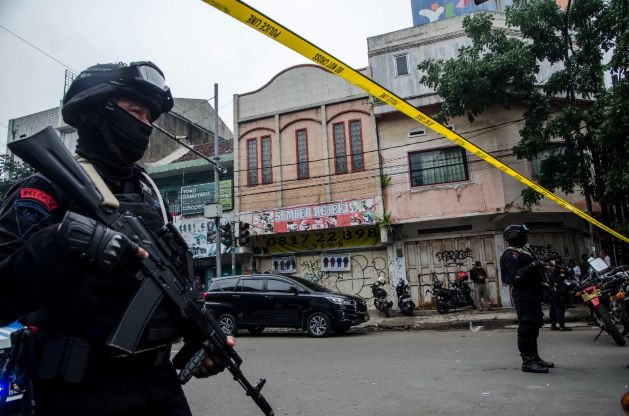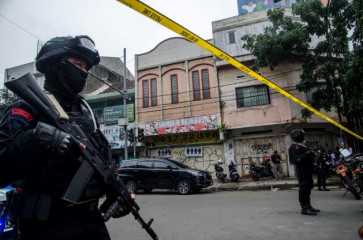Popular Reads
Top Results
Can't find what you're looking for?
View all search resultsPopular Reads
Top Results
Can't find what you're looking for?
View all search resultsHigh recidivism rate threatens counterterrorism strategy
Many terrorist ex-convicts in Indonesia are still exposed to dangerous jihadist ideologies after they are released from prison.
Change text size
Gift Premium Articles
to Anyone
T
he latest terrorist attack in Bandung on Dec. 7 should give cause for concern for at least two reasons. Not only was it the 14th suicide bombing to have rocked the country since the Bali bombing in 2002 that killed 202 people. The blast also showed that terrorist recidivism remains a clear and present danger amid Indonesia’s efforts to eradicate terrorism and violent extremism.
In the recent attack, a recidivist terrorist, identified as Agus Sujatno, alias Abu Muslim, blew himself up in Astana Anyar Police station in the West Java provincial capital. The attack also took the life of a police officer and injured 11 other people.
Agus, who was affiliated with the Islamic State-supporting group Jama’ah Ansharut Daulah (JAD), was a repeat terrorist offender. He had been convicted for his role in an act of terrorism also in Bandung in 2017, and was released from prison four years later.
The rate of terrorist recidivism in Indonesia is quite high. Between 2002 and 2020, at least 94 terrorist ex-convicts returned to terrorism. They account for 11.39 percent of terrorist inmates released in that period.
In contrast, in Europe the recividism rate only stands at between 2 and 7 percent. This is possibly due to, for example, effective coordination among various state agencies implemented through the Multi-Agency Public Protection Arrangements (MAPPA) in the United Kingdom. In this scheme police and prison service officials in England and Wales work together with other agencies to prevent and tackle problems stemming from harmful plans or acts by violent or sexual reoffenders living in the community, including terrorist recidivists.
Many ex-terrorists in Europe also disavow the jihadist ideology because they are cut off from the ideological and social context they were exposed to due to their long prison terms.
Indonesia faces a higher rate of recidivism among its jihadists because problems in the country are more complex. Many terrorist ex-convicts in Indonesia are still exposed to dangerous jihadist ideologies after they are released from prison. This is a result of internal and external factors.



















